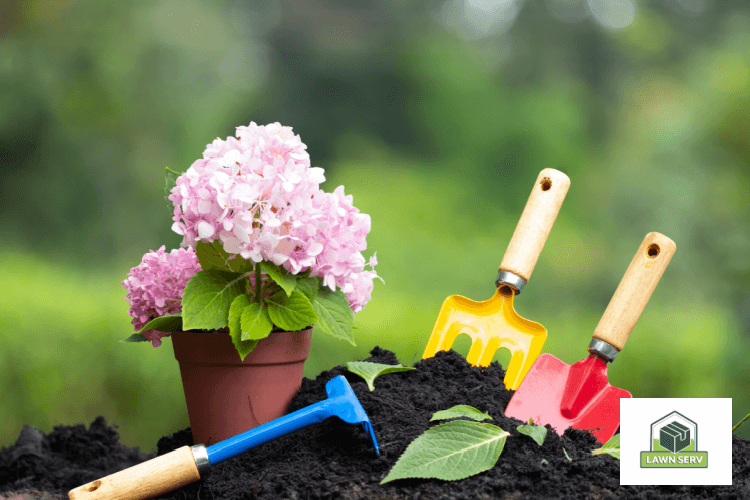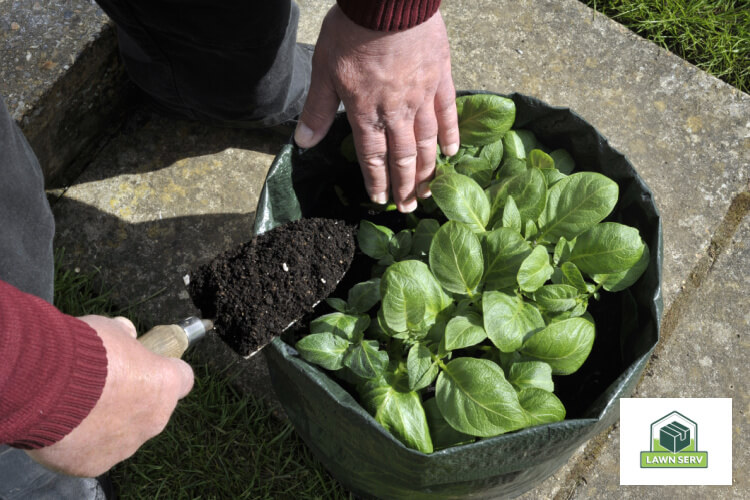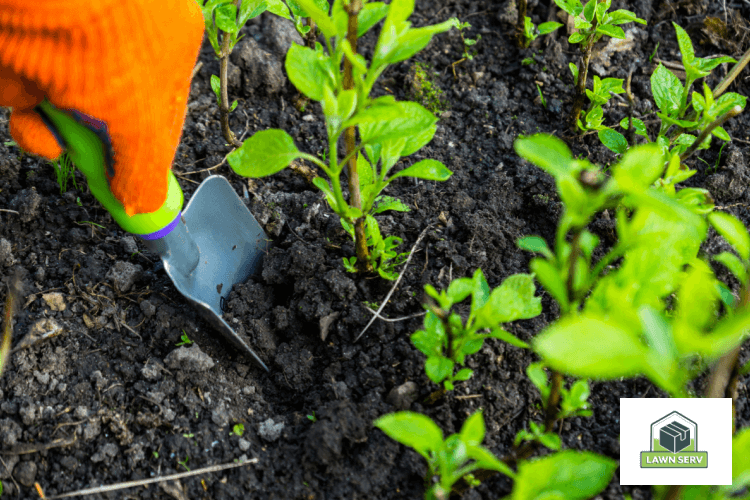
Ever had that moment when you're standing in the garden center, staring at a wall of fertilizers and soil amendments, and thought to yourself - 'Do I need to test my soil?' It's like playing guessing games with your plants. And let me tell you from experience, it’s not fun.
Your cherished roses are wilting despite all the love (and water) you've been giving them. Or those tomatoes aren't as juicy or bountiful as last season. Your green thumb feels somewhat faded. The secret could be beneath your feet – in the unassuming earth that hosts your garden.
truly thrives. When you know what's in your soil, and how to balance it properly, the rewards are remarkable! From a bountiful harvest of fruits and veggies to vibrant blooms that would make any gardener proud - it all starts with understanding your garden soil.
Table Of Contents:
- The Importance of Soil Testing
- Benefits of Regular Soil Testing
- How to Conduct a Proper Soil Test
- Understanding and Improving Your Soil's pH Levels
- DIY vs Professional Soil Testing
- The Significance of Nutrient Levels in Soil
- FAQs in Relation to Do I Need to Test My Soil?
- Conclusion
The Importance of Soil Testing
Have you ever wondered, 'Do I need to test my soil?' If so, you're on the right track. Soil testing is vital for providing nutrients to plants and ensuring your garden thrives.
The Role of pH in Nutrient Availability
Your garden's productivity heavily depends on its soil health. But did you know that the pH level plays a huge role in nutrient availability? Yes, it does. High pH can reduce this availability while low levels may be toxic to plants.
Let me explain: think about making a cup of coffee. The ideal sweetness of soil, similar to coffee, is achieved when the pH level is balanced. Just like balancing our morning brew, we want our garden soil at just the right sweetness spot.
Avoiding Excessive Fertilization through Testing
Frequent soil tests also help prevent over-fertilizing your precious greenery by keeping an eye on nutrient levels — think smart gardening rather than guessing games. Plus, they offer insights into necessary amendments or additions needed for healthy plant growth.
This strategy could save not only your lawn but also those bucks spent on unnecessary fertilizers. So why play guessing games when you can let science do its magic with a simple test kit or even better – getting professional help from local county extensions?
To sum up - regular testing is crucial because knowing what’s happening beneath those lush greens helps us make more informed decisions regarding their care - whether it involves adjusting pH levels or adding organic matter.
Benefits of Regular Soil Testing

Healthy soil is like a buffet for your plants. By testing your soil regularly, you can ensure that your plants are receiving the right nutrients. The answer lies in regular soil testing.
Enhancing Plant Growth through Optimal Nutrient Levels
Nutrient levels play a big role in plant growth. Think about it as fuel for your car, without the right mix, things don't run smoothly.
If you've ever wondered why some patches of your lawn seem to struggle despite watering and fertilizing, soil health could be the issue. It's all about balance.
A good soil test kit can reveal what’s happening beneath the surface by measuring nutrient levels and pH range. This helps ensure that plants get their ideal meal plan for strong roots and vibrant blooms.
The best time to conduct this underground detective work is either fall or spring - before planting season starts.
Avoid Playing Guessing Games with Fertilization
Fertilizers are not one-size-fits-all solutions because different garden soils have unique needs based on their existing nutrient content and pH level.
Overdoing it with fertilizer won’t help if certain nutrients are already abundant in your soil; instead, it may lead to harmful runoff affecting local waterways. A well-timed test avoids these problems while saving you money spent on unnecessary products.
In short: no more playing guessing games. An accurate soil test every two or three years gives clear guidance so that each spoonful of amendments makes a real difference towards greener lawns and bountiful gardens. So let's dig into healthier soils together.
How to Conduct a Proper Soil Test
If you're after a lush, thriving garden, getting your soil tested is key. This isn't about playing guessing games or leaving it up to chance - an accurate soil test gives you valuable insight into your garden's health.
The first step? Collecting the right samples. Dig down around 6 inches deep in various parts of your yard and collect soil. But remember, don’t mix samples from different areas together. You'll want each sample to be representative of its specific location for an accurate test.
Once collected, let the soil dry out naturally before sending it off for testing. If DIY is more your style, there are plenty of home soil testing kits available online or at local retailers.
The Role of Local County Extensions in Soil Testing

Your local county extension can be a great resource when it comes to testing garden soils too. They often provide low-cost or even free services that offer precise results compared with some home test kits.
Remember: not all plants prefer the same pH levels so having this knowledge lets you adjust accordingly by adding amendments like wood ashes (to raise pH) or peat moss (to lower pH).
No matter if you decide on using a kit or working with professionals at a lab such as your local cooperative extension, regular tests will help ensure optimal conditions for plant growth during every growing season.
Understanding and Improving Your Soil's pH Levels
Your soil's pH level plays a significant role in your garden. This seemingly simple number can greatly impact plant growth and overall health.
The Impact of Soil pH on Plant Growth
Soil nutrient availability is heavily influenced by the soil’s pH level. In fact, high levels of acidity or alkalinity can either reduce nutrient availability or make it toxic for plants.
If you're growing specific garden plants, knowing their preferred soil conditions will give them the best chance to thrive. For example, blueberries prefer acidic soils while cabbages lean towards slightly alkaline environments.
Regularly testing your garden soil helps avoid playing guessing games with its condition – this way, you know exactly what amendments are needed for optimal plant growth.
Avoid making assumptions about your garden soil based solely on appearances; remember that even rich-looking dark soils could have inappropriate pH levels for some crops.
Tweaking Your Garden’s Soil PH Level: It Can Be Done.
You might be asking yourself now: 'How do I fix my problematic garden?' Don't worry. There are many ways to amend your gardening strategy depending upon whether you've got acidic or alkaline soils at hand.
- To raise the ph level in an overly acidic environment (below 6), try adding lime like garden lime.
- In case of highly alkaline conditions (above 7), sulfur products or organic matter such as peat moss could help bring down the value closer to neutral where most plants flourish.
Remember, gradual adjustments over time are safer than drastic changes. Too much of a good thing can be bad for your garden plants. So start small and monitor the progress through soil testing.
DIY vs Professional Soil Testing
Doing soil testing is essential - so the question becomes, should you do it yourself or hire a professional? But should you go the DIY route or opt for professional services? Let's compare.
The Pros and Cons of DIY Soil Tests
Digging in with DIY soil tests, they are handy, budget-friendly, and give quick results. You'll feel like a true scientist testing your garden soils right at home. They do have their limits though - these kits can provide an overview of pH levels but might miss out on detailed nutrient profiles.
An accurate soil test is crucial for proper lawn care because it guides which amendments are needed. Unfortunately, accuracy isn't always guaranteed with home kits as compared to lab analysis.
A critical point about doing-it-yourself – understanding the results could be tricky if you aren’t familiar with terms like 'alkaline' or 'acidic'. That's where professionals come into play.
Tapping Into Professional Services
If you prefer precision over playing guessing games, professional testing services may be your best bet. Yes, they cost more than most test kits available from online retailers; however, they provide thorough analyses that include details about organic matter content and specific nutrient deficiencies—knowledge powerhouses when planning what plants year after.
Professional labs often offer recommendations on correcting imbalances too—an added bonus especially helpful if gardening is new territory for you. It's just like having an expert guide walking beside through each step of creating healthy lawns—a service not included when purchasing off-the-shelf solutions.
Remember this - the better your soil, the healthier and more vibrant your lawn. And a good test can make all the difference in understanding what your garden needs to thrive.
more, professional testing is a worthy investment. It delivers precise information about your soil's organic matter content and specific deficiencies. This knowledge can guide you in choosing the right plants for your garden and help it thrive.
The Significance of Nutrient Levels in Soil

When it comes to lawn care, nutrient levels play a pivotal role. Your soil's health can directly impact the success of your plants year after year.
Testing garden soil is essential for understanding its nutrient content and pH level. Certain nutrients are vital for plant growth but become unavailable if the soil pH strays too far from neutral. Soil tests, whether through DIY kits or professional labs, help pinpoint these specifics so you're not playing guessing games with your garden's future.
The Role of Nitrogen, Phosphorus and Potassium
N, P and K are the three primary nutrients required by plants. But here’s an interesting fact: Different types of plants prefer different pH ranges which affect their ability to absorb these crucial elements.
Finding Balance Through Testing
An accurate test will also reveal any excesses that could harm your greenery. Too much nitrogen, for instance, might lead to excessive leafy growth at the expense of fruit or flower development.
In order to get accurate results when testing garden soils yourself using a home kit bought from an online retailer or local store, make sure the sample collected is representative - mix samples taken several inches deep across different parts within raised beds.
A Healthy Lawn Begins With The Right Amendments
If tests show deficiencies in key areas like organic matter content or trace minerals, you'll need to add amendments such as composted manure or peat moss into your lawn's regimen before spring planting season begins.
To maintain good soil health, retesting every few years is recommended. This way, you can keep an eye on changes and add garden lime or wood ashes as needed to correct acidic soil conditions.
Soil testing helps plants thrive by letting us give them exactly what they need. It's not just about making things green; it’s also ensuring the right balance for a lush, thriving lawn.
Testing your soil is key to a thriving garden, helping you understand nutrient content and pH levels. Nitrogen, phosphorus, and potassium are essential for plants but can become unavailable if the soil's pH strays too far from neutral. By testing, you can detect any excesses that might harm your greenery or deficiencies requiring amendments like composted manure or other organic materials to ensure balanced nutrition for healthy plant growth.
FAQs in Relation to Do I Need to Test My Soil?
Do I really need to test my soil?
Absolutely. Testing your soil gives you insights into nutrient levels and pH balance, helping create optimal conditions for plant growth.
Do I need to test my soil before planting?
Yes, it's wise. This way, you can adjust the pH or nutrients as needed to provide an ideal environment for new plants.
How can I test my soil myself?
You can use a DIY home testing kit available at garden stores or online. For accurate results though, consider professional services like local county extensions.
How often do you need to test soil?
Ideally every two to three years. Regular testing helps maintain balanced nutrient levels and avoid over-fertilization issues in your garden.
Conclusion
Understanding your garden soil is a game-changer. You've learned that testing it isn't just for professionals, but can be an essential part of home gardening.
'Do I need to test my soil?' - the answer is a resounding yes! Regular tests let you avoid over-fertilization and help maintain optimal nutrient levels.
Professional or DIY? The choice depends on your needs. Remember, accuracy matters when it comes to maintaining balanced pH levels in the soil.
You're no longer playing guessing games with your plants' health. Armed with this knowledge, expect healthier plants year after year!


